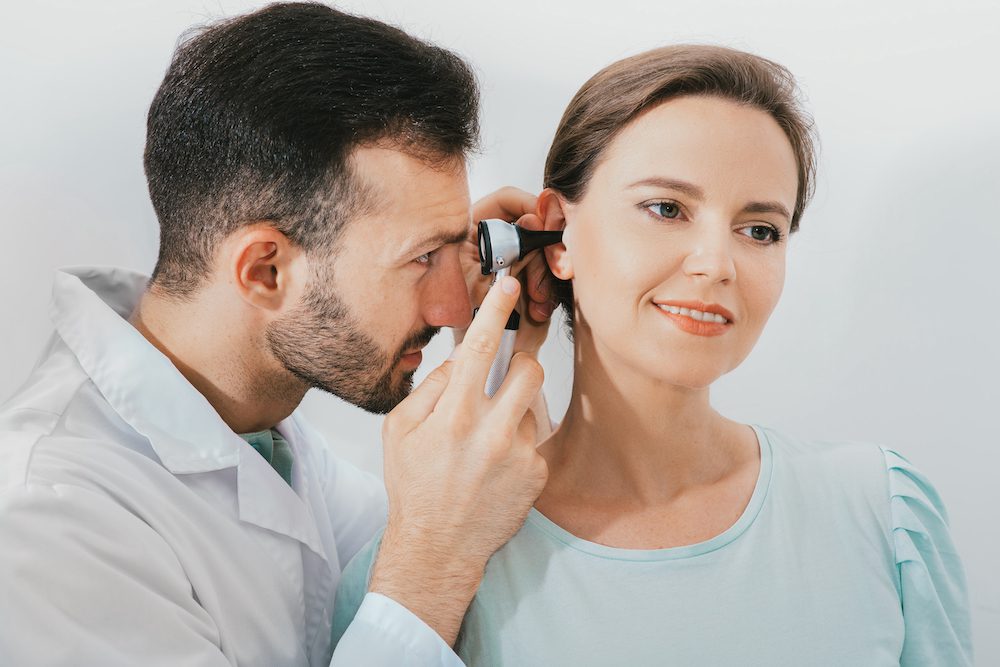Understanding the Causes of Hearing Loss
In a world full of sounds, maintaining optimal hearing health is critical.

By: admin | September 21, 2020
If during one of your hearing tests, hearing loss has been picked up, your audiologist may recommend being fitted for a hearing aid. However, to do this, you first need to have a hearing evaluation.
A hearing aid evaluation is exactly what it says on the tin – an evaluation into whether you are suitable for a hearing aid, and if you are, which one. It is a separate appointment to your hearing test. By the time you hit hearing aid evaluation point, your audiologist has already determined that you are showing signs of hearing loss to some degree and that potentially, the best way of dealing with it is to have you fitted out with a hearing aid. The hearing evaluation will look at which technology and which features you need to help you and what will work best with your current lifestyle.
There are a few steps towards having a successful hearing evaluation, and this is what we are going to look at now.
The first step towards better hearing health is to speak to your audiologist and arrange a diagnostic hearing test. At this appointment, your audiologist will discuss your hearing problems, carry out a physical examination and perform an in-depth hearing test. After the tests are complete, your audiologist will sit with you to explain your results and discuss how your hearing loss may impact your day-to-day life. They will also talk to you about your general health history and about when and how the decline of your hearing started, whether you experience tinnitus and if you experience any dizziness or other health issues. Your hearing test results will provide your audiologist with an outline of the reasons as to why you may be experiencing hearing loss, and the answers from your daily life and your own perception of your hearing will provide the basis for a comprehensive hearing aid evaluation.
If you have been tested and it has been confirmed that you have a loss of hearing, it may be recommended that you wear hearing aids. During the hearing aid consultation, your audiologist will guide you through the various models, styles and technology options of modern hearing guides.
Hearing aids are very personal in that there is no simple method to return your hearing back to the level that it was. The correct hearing aids for you will depend on various factors, including the type of hearing loss that you are experiencing, how profound it is, the clarity of your speech, the size and shape of your ear canal, your lifestyle and your hobbies. During your hearing aid consultation, your audiologist should talk to you about your lifestyles and needs and will help you through the process of determining which of the many options are best suited for you.
If you have been diagnosed with hearing loss and you have decided that you are going to be wearing hearing aids, the appropriate devices and parts will be ordered for you by your audiologist. The hearing aids must fit you perfectly for your comfort, and they must be compatible with your lifestyle needs. This is what often stops people who would benefit significantly from hearing aids from wearing them, as they do not have ones that are compatible with them.
Once you are fitted with your hearing aids, you will be shown how to use them and take care of them, such as putting them into your ears, changing the batteries, adjusting the volume and other functions and basic troubleshooting.
The fitting also usually kick starts a trial period with them, where you get to wear them in real-life situations and environments. In some cases, it takes a few different models of hearing aids or adjustments to get the right one for you. While this can be understandably frustrating, it is important to remain patient until you find the one that suits you.
Once you have spent some time wearing your hearing aids, you will know whether they are the right ones for you or whether any changes need to be made. Your audiologist would be able to show you how to make the adjustments.
If you need any further information on hearing loss or hearing aids or want to speak to someone about the things that we have mentioned in this article, get in touch with The Speech & Hearing Center by calling today at 423-551-6770.
Tags: evaluation, selection, tips

In a world full of sounds, maintaining optimal hearing health is critical.
By: admin | May 18, 2023
When it comes to outdoor activities, there are many things to consider in
By: admin | May 16, 2023

The Speech & Hearing Center is celebrating 70 years of service,
By: admin | May 8, 2023
